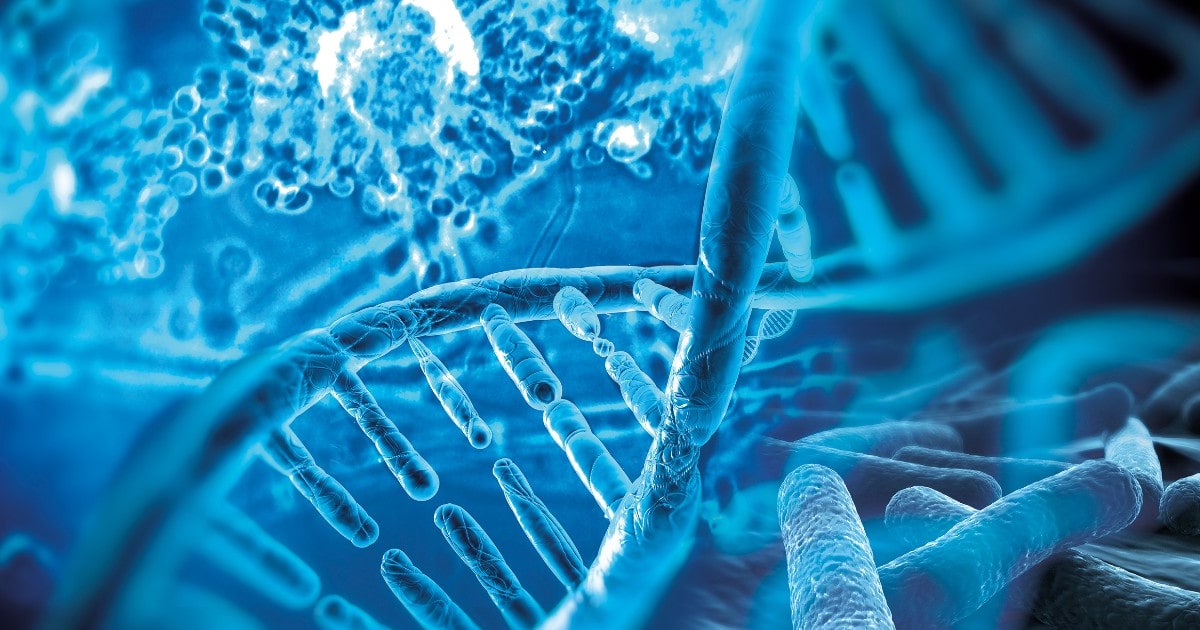
Expert Reviewed By: Dr. Brandon Colby MD
Niemann-Pick disease, type C1 (NPC1) is a rare genetic disorder that primarily affects children and young adults. It is characterized by the accumulation of cholesterol and other lipids in various organs, leading to a wide range of symptoms and complications. In recent years, researchers have made significant strides in understanding the underlying causes of NPC1, as well as developing new diagnostic tools and potential treatments. In this article, we will explore the latest findings on NPC1, focusing on the role of genetic testing in diagnosis and management of the disease.
Understanding Niemann-Pick Disease, Type C1
At its core, NPC1 is caused by mutations in the NPC1 gene, which encodes a protein responsible for transporting cholesterol and other lipids out of cells. When this protein is dysfunctional, lipids accumulate within cells, causing damage to various organs and systems. The most common symptoms of NPC1 include progressive neurological decline, liver and spleen enlargement, and lung and heart problems. The severity and progression of the disease can vary greatly between individuals, making it difficult to predict the course of the disease and develop effective treatments.
Diagnosing Niemann-Pick Disease, Type C1
Traditionally, NPC1 has been diagnosed through a combination of clinical signs, biochemical tests, and tissue biopsies. However, these methods can be invasive, time-consuming, and sometimes inconclusive. In recent years, genetic testing has emerged as a powerful tool for diagnosing NPC1, as well as other rare genetic disorders. By analyzing a patient's DNA, doctors can identify the specific mutations responsible for the disease, allowing for a more accurate and timely diagnosis.
Benefits of Genetic Testing for NPC1
There are several advantages to using genetic testing in the diagnosis and management of NPC1:
- Accuracy: Genetic testing can provide a definitive diagnosis of NPC1, even in cases where clinical signs and biochemical tests are inconclusive.
- Early detection: Genetic testing can identify NPC1 mutations before symptoms appear, allowing for earlier intervention and potentially slowing the progression of the disease.
- Family planning: Couples who are carriers of NPC1 mutations can use genetic testing to make informed decisions about family planning and prenatal testing.
- Personalized treatment: Identifying the specific mutations responsible for a patient's NPC1 can help guide treatment decisions, such as the use of experimental gene therapies.
Recent Advances in NPC1 Research
Several recent studies have shed light on the underlying mechanisms of NPC1 and opened up new avenues for potential treatments:
- Systemic AAV9 gene therapy improves the lifespan of mice with Niemann-Pick disease, type C1: This study found that gene therapy using adeno-associated virus serotype 9 (AAV9) vectors effectively increased the lifespan, delayed weight loss, and reduced motor decline in mice with NPC1.
- NPC1 defect results in abnormal platelet formation and function: studies in Niemann-Pick disease type C1 patients and zebrafish: This research revealed that NPC1 defects cause abnormal platelet formation and function, with reduced aggregation and ATP secretion, in both NPC1 patients and zebrafish.
- Impaired antibacterial autophagy links granulomatous intestinal inflammation in Niemann–Pick disease type C1 and XIAP deficiency with NOD2 variants in Crohn's disease: This study found that NPC1 mutations impair autophagy and NOD2-mediated bacterial handling, increasing the risk of early-onset severe Crohn's disease.
- Evaluation of the Potential Role of Proprotein Convertase Subtilisin/Kexin Type 9 (PCSK9) in Niemann–Pick Disease, Type C1: This research concluded that PCSK9 does not play an apparent role in NPC1 disease progression, as double mutant Pcsk9-/-/Npc1-/- mice showed no significant difference in disease progression compared to Npc1-/- mice.
Conclusion
As our understanding of Niemann-Pick disease, type C1 continues to grow, so too does the potential for more accurate diagnosis and targeted treatments. Genetic testing plays a crucial role in this process, offering a powerful tool for identifying the specific mutations responsible for the disease and guiding the development of personalized therapies. By staying informed about the latest research and advancements, patients, families, and healthcare providers can work together to navigate the challenges of NPC1 and improve the quality of life for those affected by the disease.
About The Expert Reviewer
Dr. Brandon Colby MD is a US physician specializing in the personalized prevention of disease through the use of genomic technologies. He’s an expert in genetic testing, genetic analysis, and precision medicine. Dr. Colby is also the Founder of and the author of Outsmart Your Genes.
Dr. Colby holds an MD from the Mount Sinai School of Medicine, an MBA from Stanford University’s Graduate School of Business, and a degree in Genetics with Honors from the University of Michigan. He is an Affiliate Specialist of the American College of Medical Genetics and Genomics (ACMG), an Associate of the American College of Preventive Medicine (ACPM), and a member of the National Society of Genetic Counselors (NSGC)